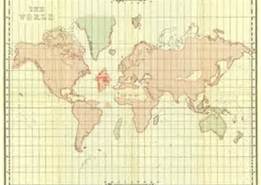How did Socrates and Plato learn of Atlantis?
The story behind the story.

One hundred years before the time of Socrates, the elder teacher/philosopher and his young student Plato, a great poet and statesman, Solon had lived. During his time the city-state was having economic problems and Solon became the architect behind a plan for economic reform that was implemented. Once in effect, some business people were happy and some not so much. Solon was receiving some disgruntled comments, and sometimes threatened, some serious. The other senators said they were happy with his plan, and were going to keep it in place, but for Solons safety they suggested he should perhaps take a leave of absence.
And so he went to Egypt, which would have been on good terms with Greece and welcomed him. There, he heard of an elder Egyptian priest who could read the hieroglyphs on the columns in the Temple of Karnak at Luxor, which told the 10,000 year old tale of an ancient sea people, the Atlantians and their contact with Egypt. Solon met with the priest and they traveld to Karnak and he learned of Atlantis, and how it had had a long beneficial relationship with Egypt for tens of thousands of years, until the end time of Atlantis, when it came to invade and conquer the countries that it had formerly traded with. Now the priest did not relate this information as though it were a myth, but as absolute history that had been carved into stone for posterity. Recall, that the word ‘myth’, comes from the greek ‘mythos’, which refers to words, or stories about our origens. To the Greeks, Myth was history, not fable.
Once Solons country has quieted down, he returned and told this story to small groups of friends, often with his grandson listening in. Many years later, when the grandson was an adult, he retold the story to Socrates, with young Plato listening on. Socrates did not write anything down, But Plato later wrote this information in the Dialogues: Timeas, telling of the founding of Atlantis by Poseidon, and a description of it; and the Criteas, which was a page and half long telling of the final days of Atlantis. The Criteas ends mid sentence, and we do not find out what intervention of Zeus and the Greek council of gods decides upon for the errant Atlantis. A third book, the Hermocrates, is referenced, but has not been found, and is conjectured to have the middle history information on Atlantis.
The Timeas, is a longer Dialogue encapsulating the history/creation of the Cosmos, and about 5 pages within that describe Atlantis’ creation. Poseidon, on one of his adventures, discovers a quiet agricultural based civilzation that is living there, descendents of Lemuria and co- existing with Lemuria in the Pacific. Posiedon fell in love with a young girl, Cleito, living with her family who were farming in the center of Atlantis. He married her, built a home, with a moat around it and she bore 5 sets of twin sons, who were each later given one tenth of Atlantis to rule over. Posiedon’ s home later became the Poseidon Temple dedicated to the couple, and the heart of Atlantis, the capitol city, with a series of 5 circular canals around it, emblematic of Atlantis. The center part was the Temple of Poseidon, next the governtmental buildings, then the miltitary, and then commercial buildings. Beyond that were the residential areas and then the farms.
Atlantis was perhaps 300-400miles by 400-500 miles, surrounded on the periphery by mountains or swamps. They never built any roads from the central areas to the periphery, only 2 canals, which lead to the capital Atlantis. Only permitted trading partners were allowed onto the easily defensible canals, and these approved trading partners were able to safely and efficiently travel to Atlantis and trade with other traders from around the world-North and South America, Europe and Africa, most of the world, were the trading partnes. This trade made Atlantis extremely wealthy, and for a countless period of time, Atlantis was a peaceful, agricultural and trading island/continent, similar in culture to Lemuria. Only in the end times did it falter and become overly materialistic and militaristic which led to its abuse of crystal powers and its self-inflicted destruction, along with an ensuing flood that wiped out most of the known civiilations around the world.
More details on Atlantis can be read in the Timeas.
